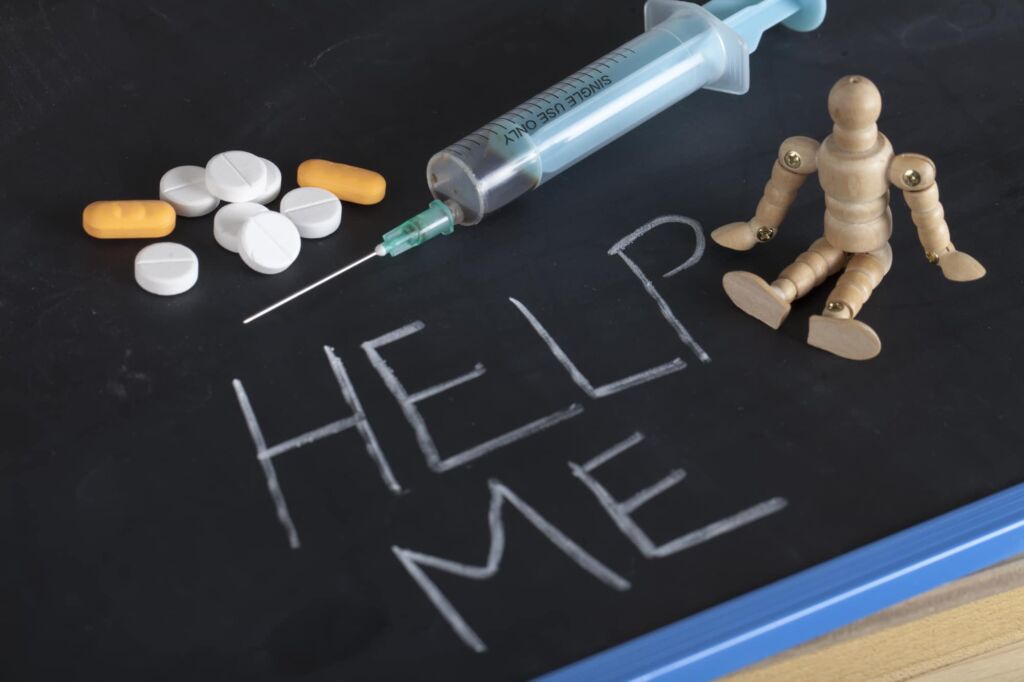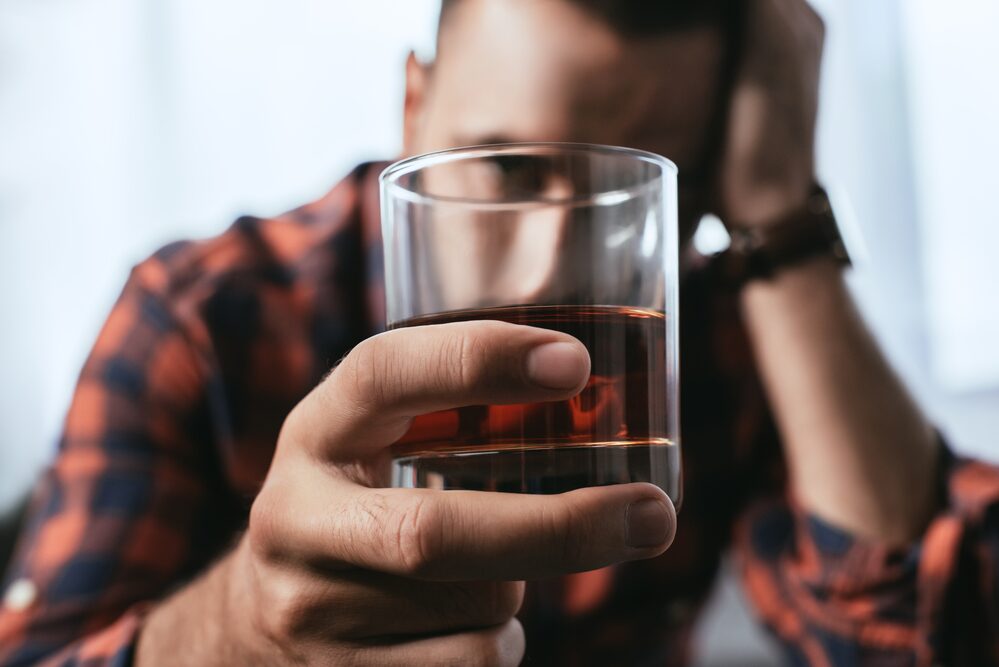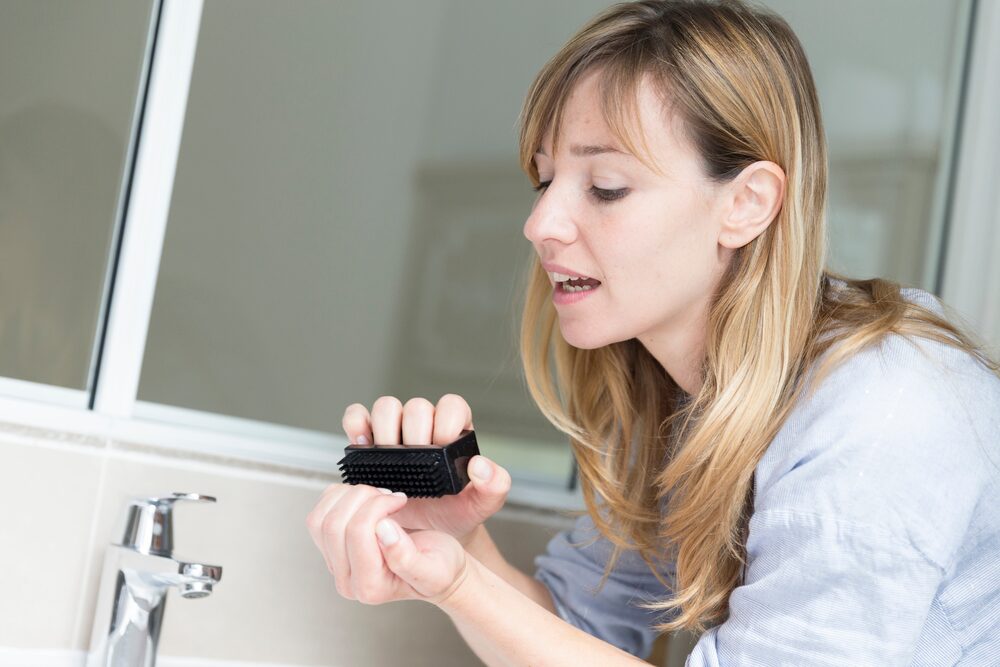In the context of alcohol and drugs, a relapse indicates the return to drug or alcohol use following a non-negligible period of sobriety. An addiction relapse can be particularly traumatic, not just for the patient but for his or her loved ones and friends as well, especially if it takes place after completing rehabilitation.
However, just as failure can be a prerequisite for long-term success in other contexts, relapse or even multiple relapses can be a standard part of a substance abuse recovery journey. Despite this, if you notice common warning signs of relapse in yourself or in someone close to you, immediate action should be taken to prevent any further negative effects on the patient’s finances, job, family, friends, and, most importantly, health.
If you or a loved one are experiencing common signs of a relapse, please reach out to an addiction or mental health professional today.
What is Relapse?
The word relapse is one we hear often, especially in terms of addiction recovery. It refers to returning back to using drugs and alcohol, meaning old thinking and behaviors. Just like any chronic disease such as cancer, relapse is unfortunately recurring for those who have already gone into remission after recovering. Relapsing falls into the following two categories:

A “Slip”
When relapse is considered a “slip” it means that a person who is in ongoing recovery or recovering from addiction resorts to using a small amount of their substance of choice. For example, a slip could be taking a sip of alcohol at a party or for a toast at a wedding, or doing one quick hit of marijuana.
Most people from the outside would not see these incidents as very detrimental, when in reality, for the person who has a disease such as addiction, any slip-up or urges to use can set them back, and send them back to rehab.
While denial and relapse are a big part of the cycle of substance abuse, it is important for recovering addicts to acknowledge their slip-ups and take the necessary steps to prevent relapse in the future. As mentioned before, after long periods of abstinence, even using just a small amount of a drug or drinking a sip of alcohol can kickstart cravings and active addiction again, but this time in a stronger manner.
Full Relapse
Relapses occur when addicted individuals seek to use substances again. This can be a one-time occurrence or a full binge. A person returning to treatment after even the slightest slip-up officially constitutes a relapse. If they do not get help again, it is also considered a relapse but one that has returned into a full-blown addiction.
As you can see, the road to sobriety and substance use recovery is rarely a walk in the park. Most addicts, unfortunately, will have future relapse once if not multiple times along the way. For people who have been in a rehab facility for at least 30 days, which is considered the beginning or early stage of recovery, the probability of relapsing is 40-60 percent.
This is because the addict inevitably faces stressors from outside influences such as work, family, which compel them to use again. Cravings are like glue, they stay with a person until they learn ways to best manage and cope with them.
While relapsing is not inevitable, they do occur suddenly. If suspicious behavior does occur during recovery, knowing the warning signs of relapse for yourself and loved ones, can help spot relapse triggers and help to prevent the worst from happening.
Why Do People Relapse?
While everyone has their reasons for relapsing, most recovering addicts are provoked by a culmination of factors, including events/situations, behaviors, environment, emotions, etc. There are three distinct stages of relapse that people go through.

Relapse Symptoms and Common Causes
A person may not realize what they are experiencing or seeing in others are warning signs of relapse. However, it is a cycle and disease, which sets people up for failure, bringing them back down the path of uncontrollable drinking and excessive drug use.
These events or feelings of anxiety are known as relapse triggers. Some of the most common reasons why people relapse include:

Early Relapse Warning Signs in Recovery
When a loved one is in the recovery process, there are many relapse warning signs to watch out for to keep yourself or another on the right track. In some cases, these signs will be on the surface but in others, he or she will hide them from sight so they can resume old habits without alerting others to their fall from grace. A common question we hear a lot is “how to tell if an alcoholic is drinking again” since it’s easy to slip in a drink without anyone noticing which can be the start of a relapse.
Former substance abusers might be ashamed of having relapsed, which will only make the situation worse. It’s your responsibility to stay on top of someone close to you recovering to prevent alcohol or drug relapse, particularly if they’re in an early stage.
Top 10 Warning Signs of Substance Abuse Relapse
1. Theft or asking to borrow money
Unexpected and repeated requests to borrow money is a strong indicator of money problems or financial irresponsibility, a standard behavior of substance abusers, as they prioritize appeasing their substance habit in the short-term over long-term relationships and health. This can also take the form of items missing from your home, including electronics, jewelry, furniture, clothing, etc.
2. Changes in physical appearance
Drug and alcohol abuse quickly becomes the top priority in an abuser’s life, taking a toll on healthy, daily routines having to do with hygiene and appearance. These changes don’t only manifest themselves in the individual but in his or her living space as well.
3. Compulsive behaviors
Unfortunately for some, getting addicted to substances or certain behaviors is just a part of who they are. Whether they have managed to remain clean or not, any activities that give them a small amount of pleasure can eventually dominate them and become automatic even after they’ve stopped enjoying said activities.

4. Denial or defensiveness
Approaching a loved one or friend about his or her secretive behavior that you suspect is related to substance abuse can be one of the hardest things that you ever do. What makes it even more difficult is his or her outright denial or defensiveness towards your concerns. Bear in mind that substance abusers often do not have their own best interests at heart and wouldn’t know help if it looked them in the eye.
5. Impulsiveness
Impulsive behaviors, particularly those actions that appear to be significantly out of character, may indicate a deeper issue, potentially signaling a relapse into alcohol or drug abuse. Such behaviors can often be a cry for help, reflecting underlying mental health struggles that may not be immediately visible on the surface.
6. The mischaracterization of old habits
Any understating or glorifying of former ways can indicate a disconnect from reality resulting from a recent return to drug or alcohol use after a period of sobriety.
7. Missing recovery meetings, therapy, and outpatient sessions
Putting distance between you and your support system, including loved ones, friends, support groups, and professional help, illustrates a breach between what substance abusers know is best for them and what they would rather do instead, a trademark of substance abuse.

8. Returning to former contacts
An essential part of any former substance abuser’s recovery is severing ties with old friends and acquaintances associated with alcohol or drug use. Reconnecting with any of these individuals not only increases the risk of addiction relapse but can also indicate that a relapse has already taken place.
9. Sudden mood changes
A life of indulgence, led by those in the early stages of substance abuse or a recent relapse, is typically marked by the inability to deal with or the sheer avoidance of negative stimulus. A rebound often entails disproportionate emotional responses to irritation, conflict, dissent, etc.
10. Unrealistic expectations
Having become accustomed to their success with sobriety, many of those in recovery forget how difficult it was to get clean in the first place and lower their guard to temptations. Underestimating your drug or alcohol addiction and assuming that you can revisit old habits and then freely return to sobriety is a grave mistake.
While this isn’t an exhaustive list, keeping an eye on these 10 alcohol and drug relapse warning signs will help give individuals the resources to learn the proper techniques to be able to manage their conditions and keep the urges to relapse and use at bay. However, maintaining a strong defense isn’t enough.
A person also must present a strong offense, including attending meetings for those recovering from your substance of choice, pursuing friendships with others at those meetings, and filling your extra time with healthy habits such as exercise, hobbies, and/or spending time with friends and family members.

Relapse Prevention Plan in Florida
Since it’s impossible to avoid most triggers completely, it’s crucial that addicts learn how to cope with inevitable stressors while in their treatment program. Luckily, most inpatient and outpatient addiction recovery programs include behavioral and mental health activities that are centered around helping addicts identify their personal triggers and coming up with strategies of how to attend to each person’s unique needs, teach them how to cope, avoid potential triggers, and manage conflict and urges should they arise in the future. However, the recovery process shouldn’t stop there.
A relapse prevention plan is the answer to achieving long-term recovery, along with individuals having the strength, discipline, courage, and most importantly, the desire to put in the work to get better.
Behavioral Health Centers Can Help Reduce the Risk of Relapse
If you or someone you know is in the process of making a recovery from substance abuse and the significant threat of relapse is still in play, Behavioral Health Centers can help.
We are a comprehensive recovery center located in scenic North St. Lucie, FL, specializing in drug and alcohol dependence, mental illness, and dual diagnosis. Contact us today when you’re ready to learn more!
References
https://www.addictionsandrecovery.org/relapse-prevention.html
https://journeytorecovery.com/understanding-euphoric-recall/







